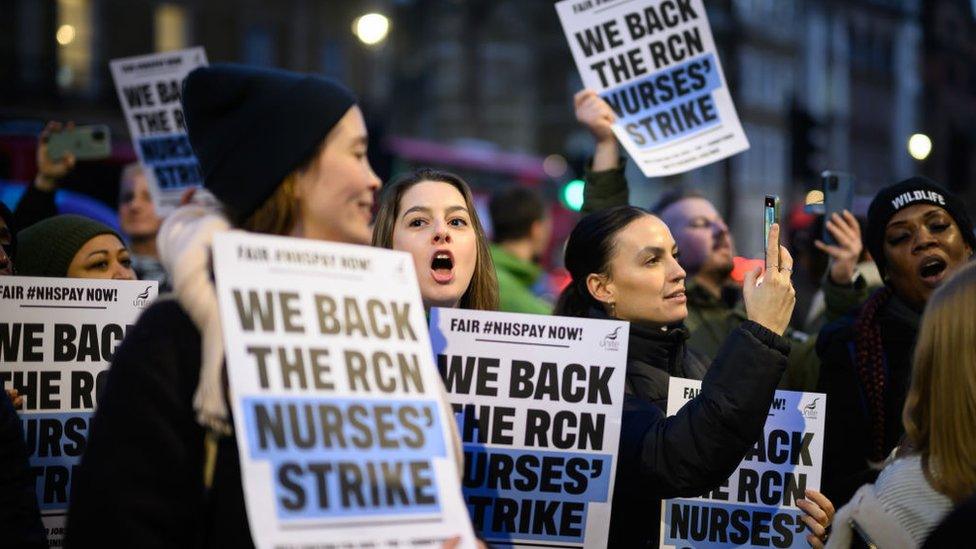Nurses' strike: New dates as union escalates dispute
- Published
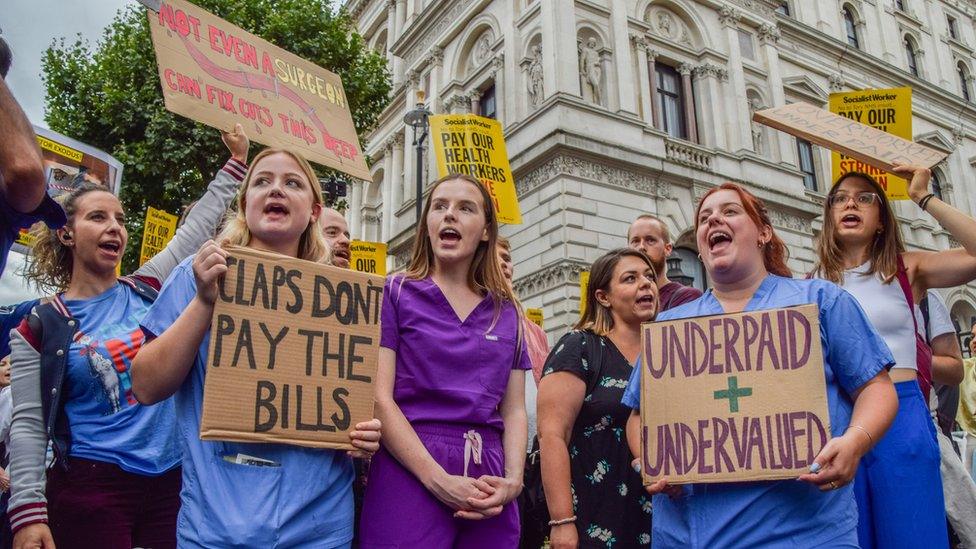
Nurses and doctors protesting in Westminster, in July
Two new nurses' strikes will be held on 6 and 7 February in England and Wales - unless there is movement on pay, the Royal College of Nursing says.
The walkouts will be the biggest so far, with more than a third of NHS trusts in England and all but one Welsh health board affected.
It comes as nurses prepare to walk out on Wednesday and Thursday, following the two strike days before Christmas.
As required under trade union laws, emergency care will be covered.
Most of the 73 NHS trusts involved in the new set of strike dates are hospitals.
It means the biggest disruption is likely to be in pre-booked treatment such as hernia repair, hip replacements or outpatient clinics.
Services such as chemotherapy, kidney dialysis and intensive care will be staffed, however, as part of the emergency cover.
RCN general secretary Pat Cullen said: "It is with a heavy heart that nursing staff are striking this week and again in three weeks. Rather than negotiate, Rishi Sunak has chosen strike action again.
"We're doing this in a desperate bid to get him and ministers to rescue the NHS. The only credible solution is to address the tens of thousands of unfilled jobs - patient care is suffering like never before.
"My olive branch to government - asking them to meet me halfway and begin negotiations - is still there. They should grab it."
The union has asked for 5% above the Retail Prices Index (RPI) rate of inflation, which currently stands at 14%.
The governments in England and Wales have given an average of 4.75% to NHS staff, with everyone guaranteed at least £1,400.
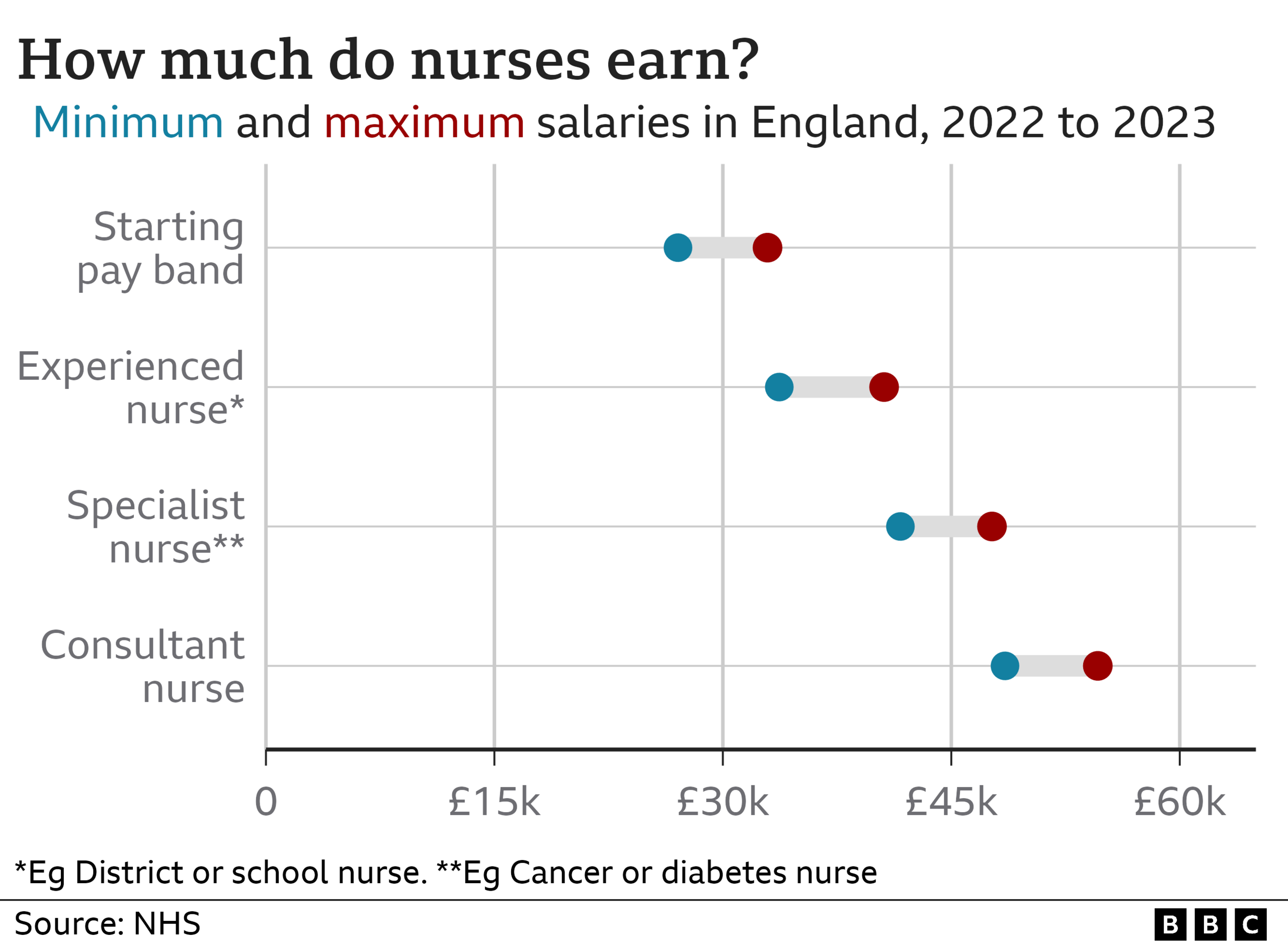
Talks have been held between the RCN and other NHS unions and Health Secretary Steve Barclay.
Government sources said there would be no movement on this year's pay award but ministers are considering backdating the 2023-24 pay rise to January. It would normally kick in in April.
This has already been tabled in Scotland, leading to NHS strikes being halted for further negotiations - although, staff there received a 7.5% pay rise this year.
There have been walkouts in Northern Ireland but the RCN said its members there were not being included this time.
Too low
The RCN, which represents about two-thirds of nurses, balloted more than 300,000 across individual NHS trusts and boards rather than in a single, national vote.
This means some nurses are not entitled to take industrial action, because the turnout in their local area was too low.
During the first two days of strikes, before Christmas, nurses at 44 out of 209 NHS trusts in England were involved, along with those at services in Wales and Northern Ireland.
This week, nurses at 55 other NHS trusts in England are striking.
Matthew Taylor, of the NHS Confederation, which represents health managers, said routine treatments and checks-ups would have to be rescheduled "against a backdrop of what is a very pressured time of year".
He added: "It appears that that both sides have a willingness to compromise - it is vital that the prime minister takes this opportunity to find a solution in health."

Are you a nurse? Have you voted on strike action? Share your experiences. Email: haveyoursay@bbc.co.uk, external.
Please include a contact number if you are willing to speak to a BBC journalist. You can also get in touch in the following ways:
WhatsApp: +44 7756 165803, external
Tweet: @BBC_HaveYourSay, external
Or fill out the form below
Please read our terms & conditions and privacy policy
If you are reading this page and can't see the form you can email us at HaveYourSay@bbc.co.uk, external. Please include your name, age and location with any submission.
Related topics
- Published22 December 2022
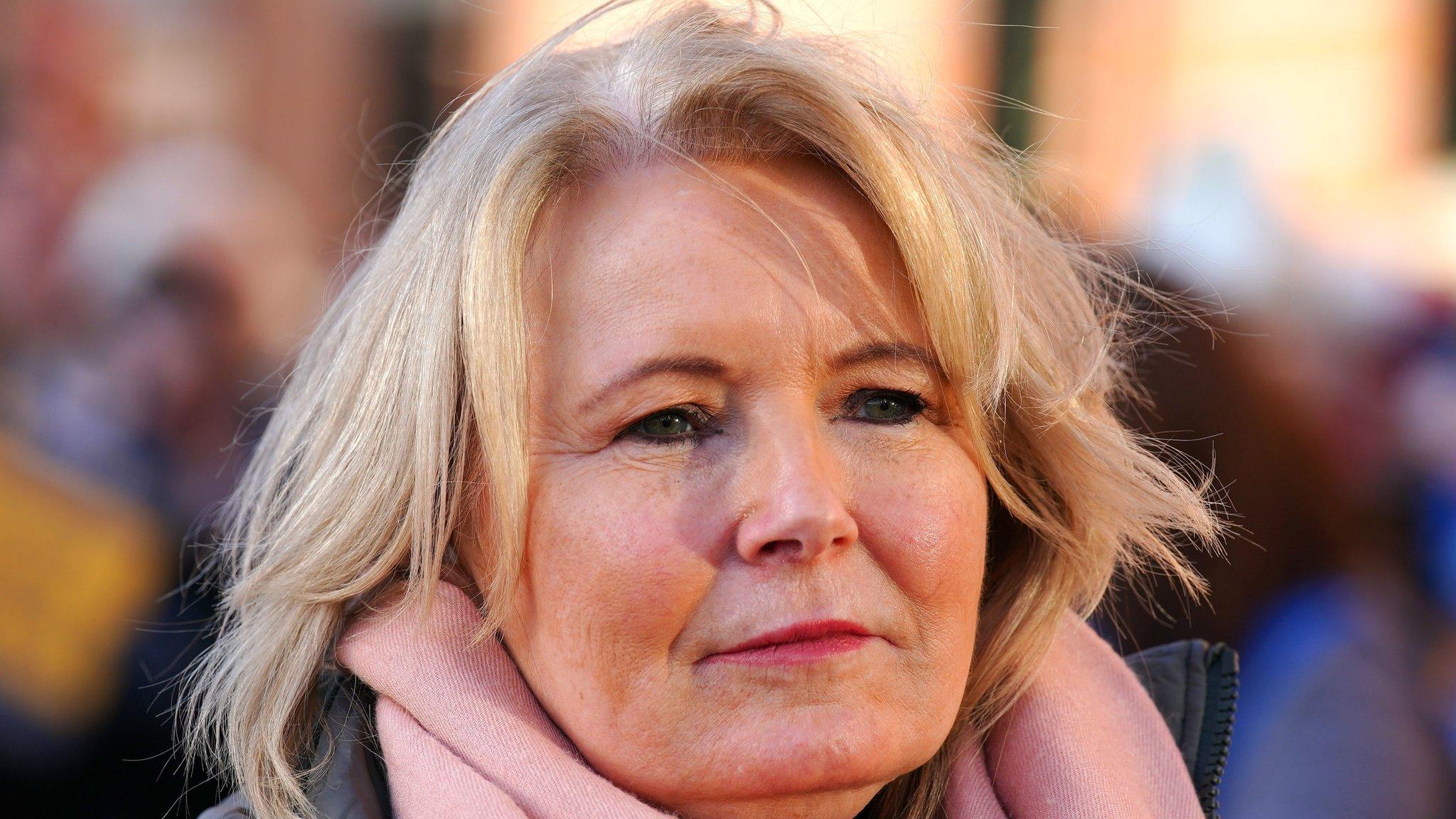
- Published7 February 2023
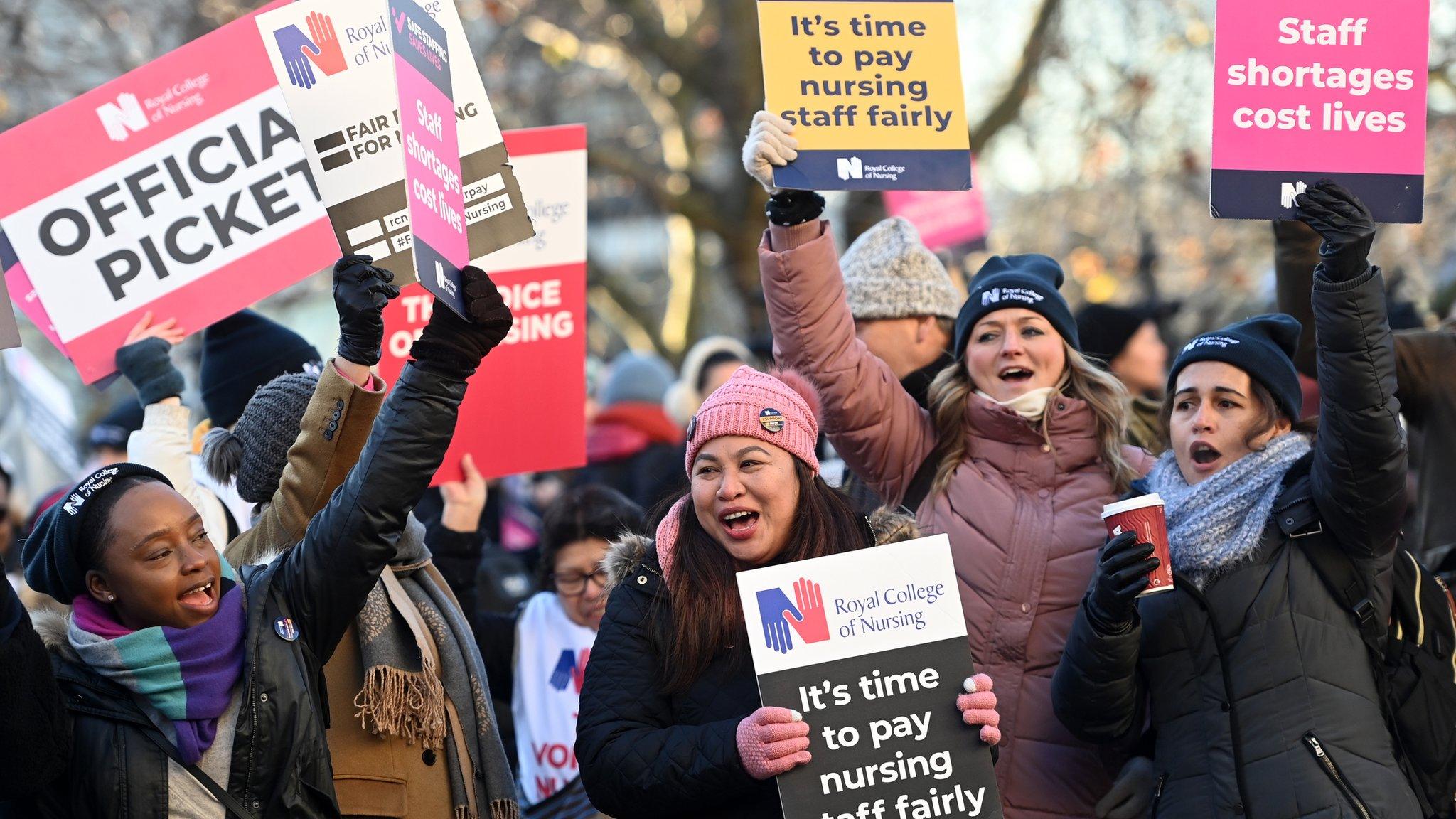
- Published23 December 2022
